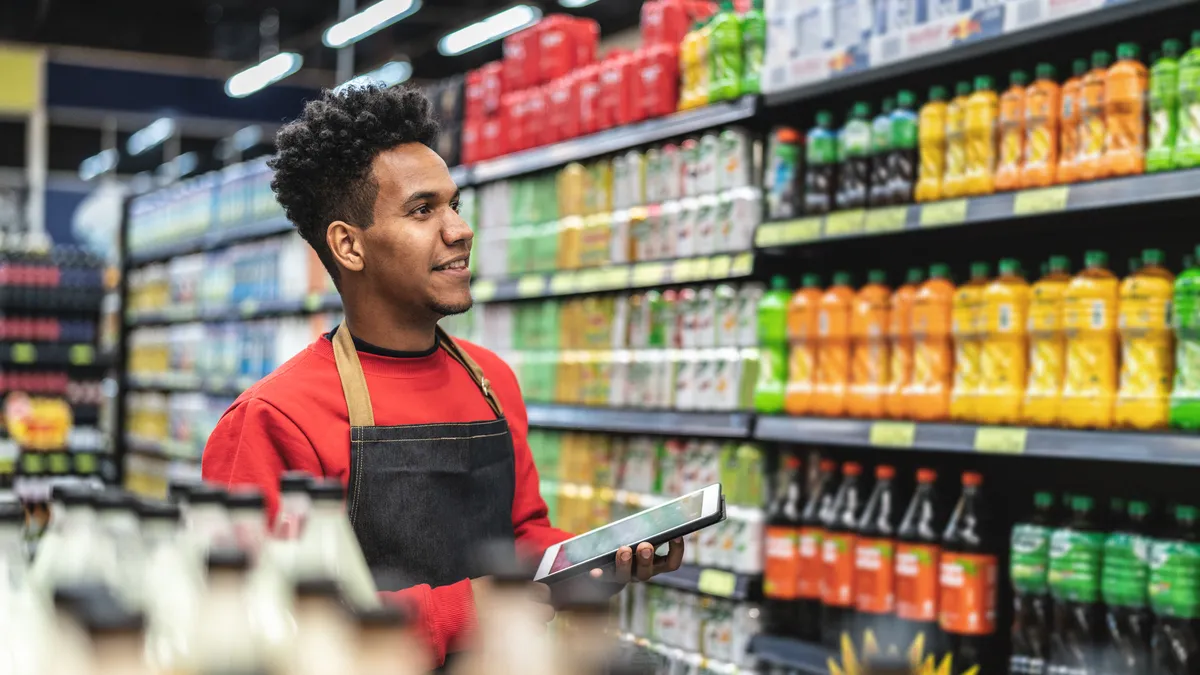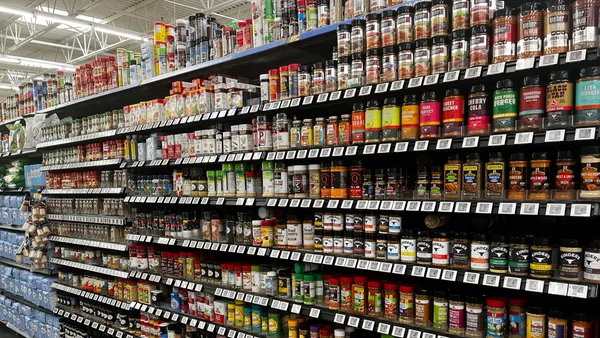Technologies that help grocery stores operate more efficiently have evolved to become a competitive advantage in today's digitally connected world.
From consumer-facing solutions such as online ordering and curbside pickup to technologies that facilitate supply chain efficiencies and help manage inventories, food retailers and their customers are migrating into an increasingly digitized environment.
"Grocery stores need to embrace the digital transformation of leveraging technology to better meet the needs of their ever-changing consumer today," said Ryan Taylor, Industry Segment Advisor at T-Mobile For Business. "They have to be able to figure out how to meet different consumer demands from within the same four walls that they've been delivering an experience to them before."
The rapid growth of grocery e-commerce during the last several years has highlighted the importance of network connectivity. After an online shopping surge in 2020 during the COVID-19 pandemic, grocery e-commerce has continued to show strength, with sales of $8 billion in September of this year, a four-fold increase from just two years ago, according to research from consulting firm Brick Meets Click.
The growth in e-commerce sales reflects just how critical omnichannel retailing has become to success in the grocery channel. Meeting this demand requires reliable network connectivity to support pickers who navigate the store with handheld devices, for example, as well as technology that aids in order fulfillment, such as smart lockers and location sensors for curbside pickup.
E-commerce has also put a strain on inventory management, as retailers have scrambled to provide same-day delivery and an "endless aisle" shopping experience to compete with pure-play e-commerce specialists.
In addition, opportunities abound for future expansion of online ordering in retail environments, as younger "digital native" consumers mature and gain spending power. These consumers have become accustomed to ordering food from restaurants using a website or mobile app, for example, and retailers seeking to compete will need to offer similar capabilities.
According to The Power of Foodservice at Retail 2021 report from FMI — The Food Industry Association, 62% of consumers said they would use a specific foodservice app from a grocery store.
"This reality puts greater impetus on food retailers to leverage e-commerce as a means to drive foodservice sales and customer satisfaction," FMI said in a recent blog post.
Enhancing productivity
Technology is also helping grocery retailers operate their stores more efficiently by automating myriad functions and reducing the amount of time spent filling out spreadsheets and paperwork. Amid the intense pressures of the current labor market, technology provides solutions that enhance employee productivity and allow workers to focus on providing value-added customer service functions.
Self-checkout devices and mobile payment capabilities are labor-saving technologies that can also provide convenience for customers' experience, for example, while other technologies are at work behind the scenes.
Automated supply-chain solutions that rely on real-time access to data, such as predictive inventory management and robots that inspect in-stock conditions and alert store associates to fill shelves, are helping food retailers solve critical inventory challenges. In addition, automated temperature monitoring, motion-sensor lighting controls and digital price signage are also becoming increasingly commonplace.
All of these innovations, often working hand in hand with IoT, depend upon having a reliable, low-latency, high-bandwidth, 5G* network.
Perhaps most importantly, a reliable 5G network will facilitate real-time access to data, which is fast becoming the lifeblood of future retail operations and is at the heart of smart decision-making. Data analysis can improve everything from site selection and store layout to customer engagement and sustainability. Heat-mapping customer flow and collecting walk-by traffic analytics, for example, can inform merchandising decisions.
"You need reliable connectivity now more than ever to be able to provide all the different services, and to meet the needs of a business today," said Taylor of T-Mobile For Business.
Analog network connectivity doesn't have the capability to reliably support all of the services that food retailers increasingly rely on to run their stores in today's environment, he said.
As retail continues to evolve to become more omnichannel and digitally enabled, the next era of retail will be powered by a hybrid network that connects the physical and digital shopping and service experience, Taylor explained.
"With a reliable 5G network and experts who understand the unique and diverse challenges of the retail industry, T-Mobile For Business is a network mobility provider that can help companies navigate the new era of retail and deliver the best solutions for their business," he said.
*5G: Capable device required; coverage not available in some areas. Some uses may require a certain plan or feature; see T-Mobile.com.










